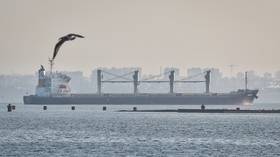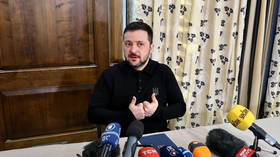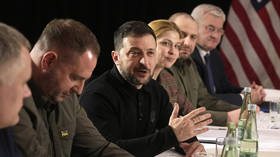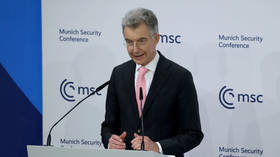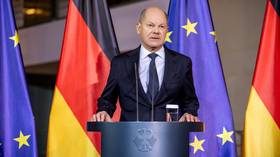Moscow slams Western hypocrisy over Ukrainian grain
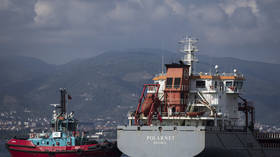
Russia’s Foreign Ministry has expressed doubt about the sincerity of Western countries’ global food security concerns, noting that grain-loaded ships from Ukrainian Black Sea ports are mostly heading to the West, rather than to starving African or Asian countries.
Speaking at a press briefing on Thursday, Ivan Nechaev, the deputy director of the ministry’s information and press department, said that “so far not a single ship with grain has reached the shores of the starving countries of Africa or South Asia.”
“They go mainly to Western ports, and the range of exported goods is mainly not wheat, but corn grain and sunflower oil, which casts doubt on the sincerity of these voices in the West that world food security depends on the ‘grain deal’,” Nechaev said, referring to the recent deal between Moscow and Kiev which allowed the resumption of grain exports from Ukrainian ports.
Prior to the deal, Kiev and its Western supporters were accusing Moscow of deliberately preventing the food shipments and in this way threatening global food security. Moscow repeatedly denied those claims, saying that Ukraine had made the shipments impossible by laying naval mines in the waterways around the ports.
The foreign ministry spokesman also touched on the situation with the Sierra Leone-flagged freighter Razoni, which sailed out of Odessa on August 1 carrying 26,000 metric tons of chicken feed destined for Lebanon. The ship was turned back from Beirut on Monday, after the Lebanese buyer refused to accept the shipment, on the grounds of it being several months too late.
“As it turned out, there was not the wheat on board that the Lebanese needed, but corn, fodder corn,” Nechaev said.
Nechaev’s remarks about the destinations of Ukrainian grain echo a recent article by New York Times. On Tuesday, the outlet noted that since the Istanbul deal took effect on August 1, none of ten ships which have left the Ukrainian ports, were bound for Yemen, Somalia, or other countries facing “catastrophic levels of hunger.”
Meanwhile, Ukrainian President Vladimir Zelensky told his counterpart Mokgweetsi Masisi of Botswana on Monday that Ukraine was committed to remaining “a reliable food exporter.”
Stressing that Russia is “committed to its obligations and is looking forward to effective fulfillment of the Istanbul deal,” Nechaev noted that the deal includes agreements not only on the export of grain from the Ukrainian ports, but also on the normalization of Russian food exports to the world market.
While implementation of one part of the deal has been ongoing for a week and a half now, the other element is yet to be fulfilled, Nechaev said, expressing hope that the Western countries will “create the necessary conditions” for access of Russian fertilizers and food to the global markets.
